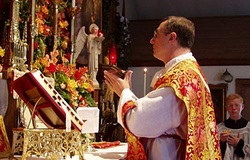
In offering the bread and wine the calls priest them the immaculate Host, the Chalice of salvation. We should not be astonished at this; for all the prayers and all the ceremonies before and after the consecration have reference to the divine Victim. It is at the moment of consecration that the Victim presents himself to God, that he offers himself to him, and that the sacrifice is offered; but as these different acts cannot be explained at the same time, they are explained one after the other. The priest then offers by anticipation the bread prepared for the sacrifice, and while saying, Suscipe, sancte Pater, hanc immaculatam Hostiam, etc. (Accept, O holy Father, this immaculate Host, etc.); and he offers the wine as if it had already been consecrated, by saying, Offerimus tibi, Domine, Calicem salutaris, etc. (We offer unto Thee, O Lord, the Chalice of salvation,etc.) because this wine, being afterwards changed into the blood of Jesus Christ, becomes our salvation. St. Augustine says that as at the Eucharistic Table our Saviour offers us to eat and to drink his body and his blood, we should also offer to him our body and our blood by giving ourselves entirely to him, being ready to sacrifice our life for his glory, should it be necessary. These are the beautiful words of the holy Doctor: “You know what this banquet is, and what nourishment is offered you at this table. Since Jesus Christ gives entirely his body and his blood, let no one approach without giving himself entirely to the Lord.”
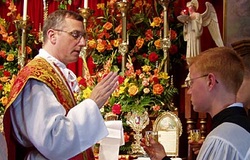
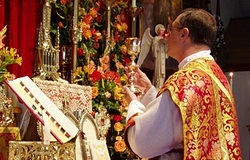
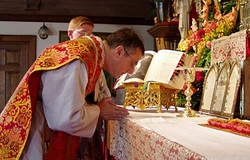
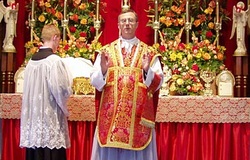
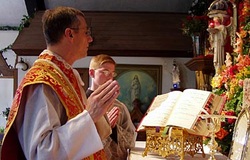
Part 4 Part 2




